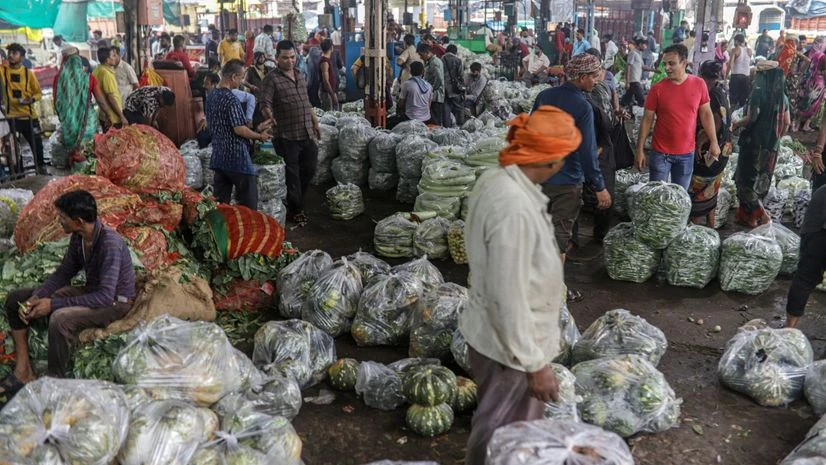By Anup Roy
India needs to adopt a sound policy on how to store perishables to shield the economy from repeated food price shocks, researchers in the country’s central bank said.
“The vulnerability of the economy to recurring incidence of vegetable price shocks, especially ahead of and during the monsoon, warrants major reforms in perishable supply chains covering transportation networks, warehousing and storage technologies,” the Reserve Bank of India said in its monthly State of the Economy report Thursday.
These reforms will lead to efficiency and productivity gains and enable “stable prices for consumers, assured supplies and remunerative proceeds for farmers,” it said.
This is not the first time that the central bank has blamed the lack of cold storages and proper supply chains for runaway food prices. In recent months, prices of tomatoes —- a staple for many Indian households — has galloped 400% since the start of the year as floods in some parts and deficient rains in others left crops damaged. India’s retail inflation in July jumped to a 15-month high of 7.44% due to rising food costs.
Also Read
Last week, the RBI opted to keep rates unchanged — a hawkish pause described by analysts — and ordered banks to set aside more cash to mop up excess liquidity, as it stepped up its fight against food-driven inflation.
Higher prices is also a hot-button issue in India where past governments have fallen as they couldn’t control the prices of essential items. With national polls just nine months away, the government is looking to carve out about $12 billion from the budget to cool prices.
The RBI forecasts consumer price index inflation to average “well above 6%” in the July-September quarter, a reading above the central bank’s 2%-6% target range.
Possible adverse weather events such as El Nino can impact agriculture production after September, while cuts in oil production is leading to “diminishing probability of crude price pressures easing over the rest of the year,” the central bank warned. “This bodes ill for net energy importers like India,” it said.

)
